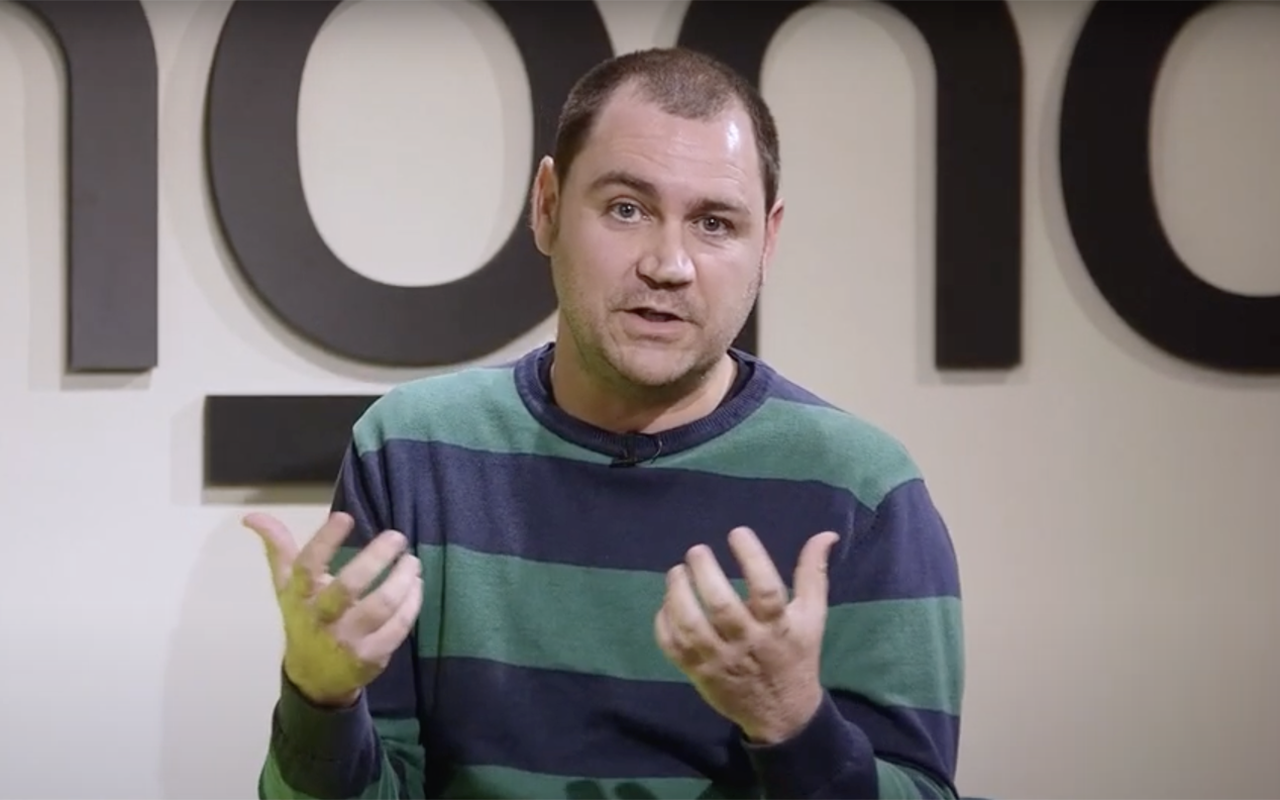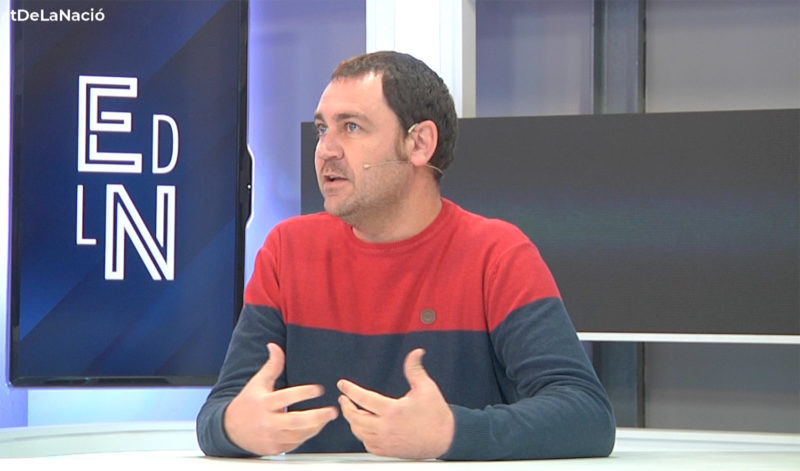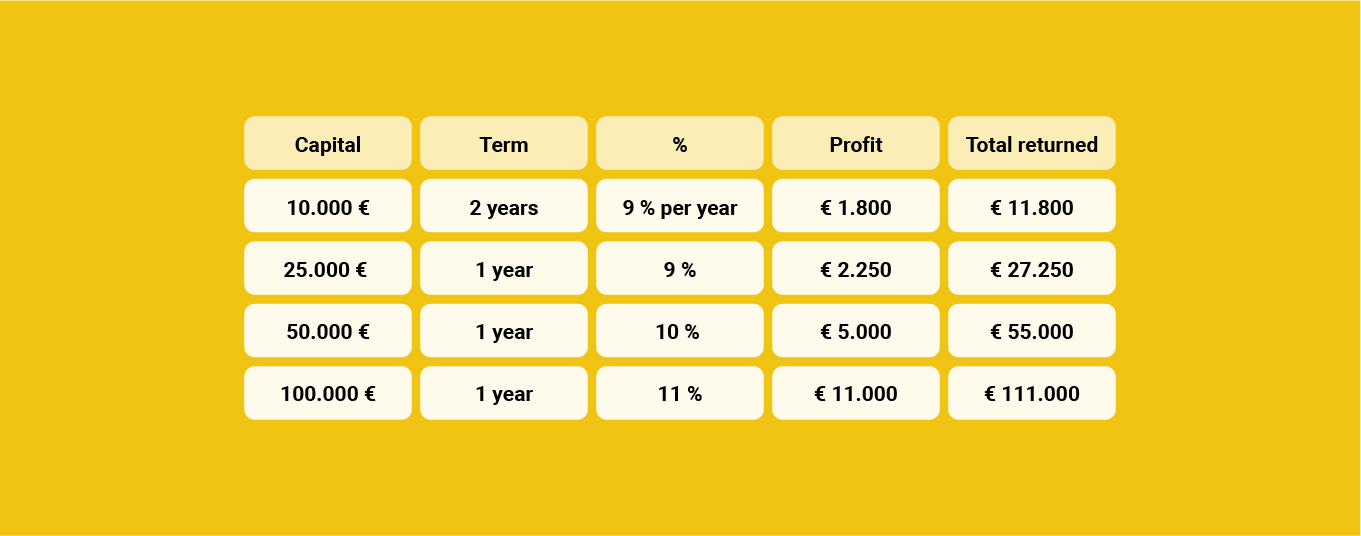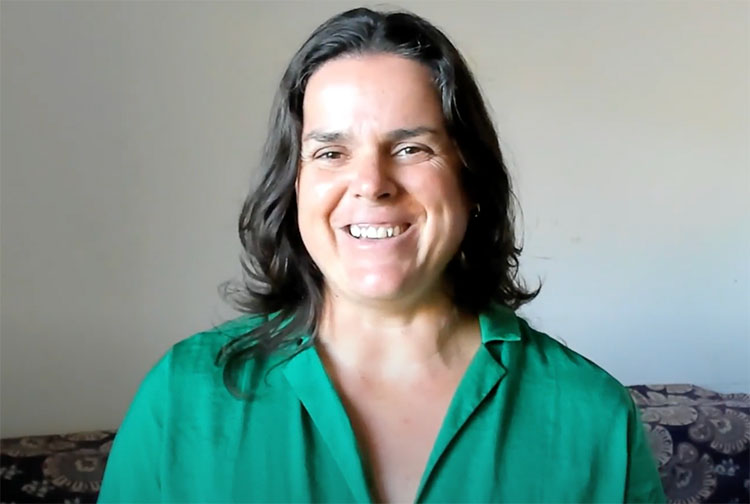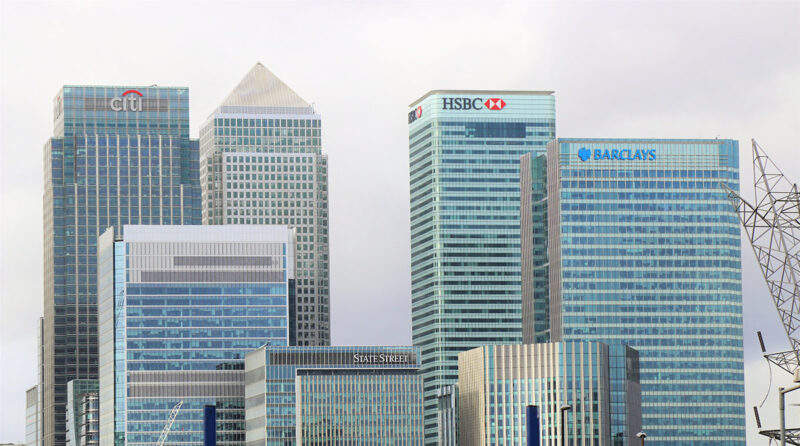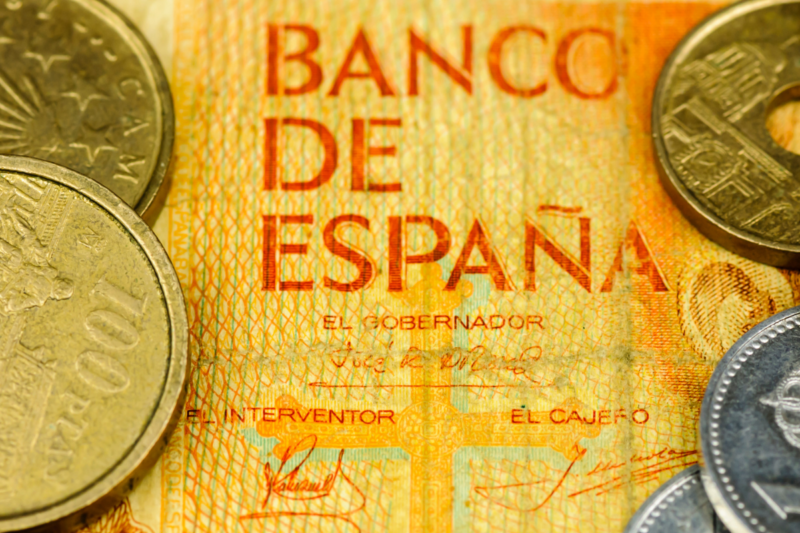Key concepts to understand cryptocurrencies
Cryptocurrencies have revolutionised the global financial system, but like any new technology, they raise a lot of questions. We have prepared a small glossary of the basic terms you should understand getting started in the world of cryptocurrencies.
Cryptocurrencies, also known as digital currencies, are alternative currencies that can be defined as digital assets that use cryptographic encryption to guarantee their ownership, ensure the integrity of transactions, and control the creation of additional units. That said, there are a few key concepts to be clear about when understanding how cryptocurrencies work.
Blockchain
The blockchain is a technology that allows transactions between two or more people without the need for intermediaries. It is the ledger where all transactions are stored, and distributed on computers, which can be anywhere in the world, interconnected through a Peer-To-Peer (P2P) network, and without the need for a central server. It is a technology that facilitates the decentralisation of financial applications and any other digital records. Furthermore, it is also considered very secure because a record of everything that has happened on the network can only be changed if all parties agree.
Mining
While in the traditional monetary system, governments print money according to their needs, monetary creation in the ecosystem of the most popular cryptocurrencies, such as Bitcoin, is limited. Moreover, cryptocurrencies are not issued and made available to everyone, they are put into circulation in encrypted blocks that have to be decrypted. This is where the concept of cryptocurrency mining comes from, a computational process by which a set of computers, the miners connected to the network, are given a new algorithm to solve a mathematical problem, which, once solved, is rewarded with a commission for issuing a new unit of the cryptocurrency, which is added to the blockchain.
Cryptocurrency wallets
Cryptocurrency wallets are virtual wallets by which we can manage our cryptocurrencies. The main difference with other virtual wallets that we can find in many banks lies in the security offered by their software, allowing absolute control of the public and private keys to sign transactions and operations executed with cryptocurrencies through the blockchain network. The use of these wallets is indispensable when managing cryptocurrency-based digital currencies that do not exist in the physical world.
Staking and Hodling
The concept of ‘staking’ consists of acquiring cryptocurrencies and keeping them locked in a wallet in order to support the security and functioning of the blockchain. In return, we receive a profit, or reward, in the form of additional cryptocurrencies. Hodl is a similar process, but in this case, the assets are not locked and you can use them freely. It is an option used by investors who want to hold their assets for a long period of time in the hope that they will appreciate in value.
Tokens
Although the concepts of token and cryptocurrency can be considered synonymous, the distinction lies in the fact that cryptocurrencies have their own blockchain, while tokens are issued on another blockchain, such as Ethereum. A token is a unit of value issued by a person or a private company, with which you can represent different objects within a blockchain. It is a transferable value within the blockchain network but has no real value outside of it, similar to what would happen if we had casino chips or airline points. Therefore, a token can have different purposes: from giving access to more functionalities in an online game, to being able to be exchanged for real objects, collecting, and participating in an event …
11Onze is the community fintech of Catalonia. Open an account by downloading the super app El Canut for Android or iOS and join the revolution!
L’activitat bancària té un paper fonamental en la inflació. Quan el crèdit no es dedica a l’economia productiva, a la generació de nous productes o serveis, augmenta artificialment la capacitat de compra, la qual cosa trenca l’equilibri entre oferta i demanda i impulsa l’increment dels preus.
El negoci bancari no funciona exactament com la majoria de la gent creu. Tendim a pensar que els bancs són simples intermediaris financers que reben diners de part dels seus clients en forma de dipòsits per prestar-los a altres clients en forma de crèdits. I se suposa que els seus beneficis provenen del diferencial entre els interessos que paguen pels diners dipositats i els interessos que cobren pels diners prestats.
La realitat és molt més complexa. El que anomenem “dipòsits” no són tals perquè no es mantenen sota custòdia, sinó que hauríem de considerar-los préstecs que fem al banc. Al seu torn, els crèdits que concedeix una entitat bancària no són en realitat préstecs tal com els entenem.
Quan signem un préstec, el que fa el banc és comprar el nostre compromís de devolució de l’import nominal concedit, la qual cosa seria com un pagaré. No existeix necessàriament una transferència de diners físics del banc al nostre compte perquè el que denominem “dipòsit” no és més que l’anotació comptable d’un import que el banc deu al titular d’aquest compte.
Així és com els bancs comercials creen diners artificialment, com explica el mateix Banc d’Espanya. De fet, la immensa majoria dels dipòsits es generen a partir del no-res quan els bancs concedeixen crèdits, sense que estiguin recolzats per diners reals.
Crèdit productiu o improductiu?
Quan aquesta creació fictícia de diners serveix per finançar l’economia productiva, fent possibles inversions que generen nous béns i serveis, es manté l’equilibri entre oferta i demanda. Existeixen més diners nominals, però també més productes i serveis que es poden adquirir, amb la qual cosa no augmenta la inflació.
En canvi, si el banc genera artificialment diners per al consum i això no va acompanyat d’un augment en el volum de productes i serveis disponibles en el mercat, es trenca l’equilibri entre oferta i demanda. Com hi ha més diners disponibles per comprar el mateix volum de productes i serveis, es genera inflació. I, per desgràcia, la majoria dels préstecs no són productius, sinó que es dediquen a transaccions financeres que simplement permeten la transmissió de drets de propietat.
D’aquí la conveniència que la regulació contemplés una categorització del crèdit per evitar un excés de préstecs especulatius que disparin la inflació. Si la major part del crèdit bancari es dediqués a fins productius, tindríem un sistema financer més estable i una economia sana i sense inflació.
El marc normatiu actual fa aigües perquè es basa en la premissa que els bancs són simples intermediaris financers, quan en realitat creen diners artificialment i provoquen una espiral inflacionària, que moltes vegades acaba en l’esclat de les lògiques bombolles financeres.
Una possible solució
Alguns països han aconseguit evitar aquest problema gràcies a sistemes financers dominats pels bancs comunitaris, que no prioritzen l’especulació financera sinó el crèdit productiu. A Alemanya, per exemple, aquest tipus de bancs petits dominen el mercat i destinen la major part dels seus crèdits a les pimes.
Sens dubte, gran part de l’èxit econòmic alemany dels últims 200 anys es deu al seu sistema financer, que mai ha necessitat diners públics per rescatar a algun dels seus bancs ni ha fet perdre dipòsits als seus clients.
Per estabilitzar i millorar l’economia catalana, seria convenient trencar amb l’actual lògica del nostre sistema financer i impulsar la creació de bancs comunitaris que prioritzin el finançament de l’economia productiva.
Si vols que el teu negoci faci un gran salt, utilitza 11Onze Business. El nostre compte d’empresa i autònoms ja està disponible. Informa-te’n!
Over the past two years, central banks have added record amounts of gold to their reserves and intend to continue increasing their holdings of the golden metal in light of macroeconomic and geopolitical uncertainty. Beyond gold’s attractiveness as a safe-haven asset in times of economic crisis, many countries are diversifying their reserves away from the US dollar, data released by the World Gold Council (WGC) show.
The latest survey by the World Gold Council (WGC) on Central Bank Gold Reserves, which was conducted between 19 February and 30 April 2024 with a total of 70 participants, shows that 29% of respondents plan to increase their gold reserves over the next twelve months and 81% expect an increase in global central bank holdings over the same period, the highest proportion recorded since this annual survey began in 2018.
The report confirms that in an increasingly challenging economic and geopolitical environment, central banks worldwide continue to increase their gold holdings. According to the survey, 1,037 tonnes of gold were acquired during 2023, the second-highest figure in history, after the record 1,082 tonnes in 2022.
The record demand for gold by central banks over the past two years has been spurred, in large part, by the eagerness of some countries to diversify their foreign exchange reserves. According to data from the World Gold Council (WGC), in the first quarter of this year alone, central banks had already added 290 tonnes to their reserves, up 1% year-on-year and 69% more than the quarterly average of the past five years. This is the strongest start to the year in the WGC’s historical series, which dates back to 2000.
“Despite record industry demand over the past two years, compounded by soaring gold prices, many reserve managers continue to maintain their enthusiasm for gold,” Shaokai Fan, head of the WGC’s central banking division, said in a statement.
The dollar loses its prominence
Central banks are more optimistic about gold’s future share of global reserves and more pessimistic about the dollar. It is obvious, that the weaponisation of the dollar through economic sanctions and the Russian central bank’s asset freeze are having a positive effect on gold purchases.
The WGC notes that the main motivation for the planned buying is “the desire to rebalance gold holdings, domestic gold production and financial market concerns, including heightened risks of crises and rising inflation, to a more preferential strategic level”.
When asked about gold’s future share of global reserves, 69% of respondents believe that gold will occupy a larger share of reserves in the next five years, up from 62% in 2023 and 46% in 2022. Central bankers are more pessimistic about the US dollar’s future share of global reserves because it has become less attractive in the long term for investors seeking a safe-haven asset.
In any case, the main reasons given by central banks to justify increasing their gold holdings – “long-term store of value or hedge against inflation”, “yield in times of crisis” and “effective portfolio diversifier” – are equally valid for any investor who wants to protect his savings in the current economic and geopolitical context.
If you want to discover the best option to protect your savings, enter Preciosos 11Onze. We will help you buy at the best price the safe-haven asset par excellence: physical gold.
Summer is here and Catalans will spend an average of 1,203 euros on holidays. What if we told you that with Litigation Funding, which 11Onze Recommends, you can get enough returns to pay for a great holiday next year?
With summer comes the long-awaited holidays and, according to a recent study, Catalans will splash out when it comes to having a good time. Each one of us is expected to spend an average of 1,203 euros on our summer holidays. In other words, you’re about to spend your hard-earned money.
And you don’t mind, because after working for a whole year, you’ve earned a well-deserved break. But why not put your money to work too, so it can give you a holiday? How would you like to be able to go on holiday without spending your savings?
Get the most out of your savings
Litigation Funding, which 11Onze Recommends, offers you the chance to get a return of between 9 and 11% on your money by financing the legal costs of law firms that pursue claims from citizens who have been mistreated by banks or the administration. With your money 100% insured and with a success rate of more than 90% of litigation, you have no excuse for leaving your savings at a standstill!
If you want to know how to get returns on your savings with a social justice product, 11Onze Recommends Litigation Funding. So that next summer, your holidays are paid for!
A vulture is a bird of prey that feeds mainly on carrion. A term that also serves as a statement of intent when it comes to defining a type of investment fund that acquires debt from companies or states on the verge of bankruptcy. Laura Bunyol, 11Onze agent, explains the origin of vulture funds and who is behind them.
Vulture funds are high-risk investment funds that aim to buy public and private debt securities of companies or countries whose solvency has been seriously compromised. Unlike the scavenger birds that give them their name, these funds do not perform an essential and beneficial sanitary task, quite the contrary, in fact, they have been labelled as modern usury and a threat to human rights.
Their business model is based on buying assets at the lowest possible price and, in the short or medium term, selling them to other investors for high returns. So far, it all seems a perfectly normal and logical investment concept. But from whom are these assets bought at such a good price? And who pays the consequences?
When malpractice is legal
As Bunyol explains, “in 2008 the state created the ‘bad bank, FROB, to absorb the banks’ deteriorated assets”, that is, the state bought the banks’ toxic assets with public money, and then sold them at a bargain price, between 20% and 30% of their nominal value, to the so-called vulture funds.
On the other hand, in the midst of the Spanish real estate crisis, vulture funds focused on buying up banks’ mortgage loans en masse. After pressuring debtors who could not assume the debt, these funds proceeded to denounce and subsequently initiate the foreclosure process.
A practice that was not always possible because many of these real estate assets were council flats that could not be converted. Therefore, the managers of these funds opted to change the rental contracts “to double the original price of the rents”, suffocating the tenants, says the 11Onze agent.
If you want to discover the best option to protect your savings, enter Preciosos 11Onze. We will help you buy at the best price the safe-haven asset par excellence: physical gold.
The multiple bank failures that took place during the 2008 financial crisis familiarised us with the concept of a bailout, a mechanism whereby a government uses public money to rescue financial institutions. However, there is another, less well-known option where shareholders, creditors, and depositors can take over the losses.
Big banks have become used to playing Russian roulette with money that is not theirs. If business is good, they keep the profits, while if it goes badly, the losses are socialised at the taxpayer’s expense. This is a globalised phenomenon that has been repeated over time and became evident with the multiple bank bailouts and financial sector restructuring that took place during the 2008 financial crisis.
Thus, to avoid the collapse of the banking system, the first option for many countries was to bail out ailing institutions or, in other words, use taxpayer’s money to cover the red numbers caused by the irresponsible financial management of the bankrupt institutions’ management teams.
In the case of Spain, major international organisations estimate the costs of the bank bailout at 6% of GDP. More than 64 billion euros in public money was injected into the banks, much of which has already been written off after the banks have only returned a tiny amount to taxpayers.
External bailout vs. internal recapitalisation
The two basic models currently used by the financial system to help struggling banks are the bailout or external rescue and the bail-in or internal recapitalisation. While in a bailout the state, i.e. the public as a whole, bears the cost of recapitalisation, in the case of a bail-in the losses are borne by shareholders, creditors and ultimately depositors, as happened in Cyprus in 2013. The concept of bail-in is based on the notion that if the bank needs to rebalance its balance sheet, it must first use its own capital.
Since January 2016, a bail-in system has been in force in the European Union. According to this resolution mechanism, shareholders receive the first blow. If this does not stabilise the bank, subordinated creditors take over. Next in line are the holders of senior bonds and, finally, uninsured depositors, i.e. those with more than 100,000 euros in their accounts, with preference given to the deposits of large companies over those of households and SMEs, while small depositors remain unaffected.
It is therefore a mechanism designed to minimise the possibility that the costs of resolving a non-viable institution will be borne by taxpayers, while at the same time ensuring that systemically important institutions are resolved without endangering financial stability.
Can the bank or the State take my savings in case of bail-in or bankruptcy?
Yes, if you have more than €100,000. If you have less than €100,000, you will be excluded from the bail-in and will be covered by the Deposit Guarantee Fund in case of bankruptcy. This body guarantees the return of money from savings accounts, current accounts and fixed-term deposits.
Let us remember that the FGD guarantees 100,000 euros per depositor and institution. Therefore, to insure higher amounts, it is advisable to have the capital distributed among different entities, without exceeding 100,000 euros in any one of them. Alternatively, if an account with 200,000 euros is shared by two people, each of them would have 100,000 euros insured.
Another option is to open a current account with a fintech such as 11Onze, which operates through an Electronic Money Institution (EMI) and is required by law to insure 100% of its customers’ deposits in the event of bankruptcy, regardless of the amount.
Are there any real examples of bail-in?
In Spain, on 7 June 2017, Banco Popular was the first Spanish bank to be bailed-in under the European Union’s new framework for bank resolution. Shareholders and subordinated debt holders lost their investment, and the bank was sold for one euro to Banco Santander, thus avoiding the use of public money. In this case, depositors, even if they had more than 100,000 euros in savings, did not lose their money.
The bank bailout in Greece in 2012 led to the liquidation of Laiki Bank and the restructuring of the Bank of Cyprus through a bail-in. In this case, customers with up to €100,000 in savings did not lose their money, but big depositors lost a large part of their savings or, in some cases, this money was converted into shares.
If you want to discover the best option to protect your savings, enter Preciosos 11Onze. We will help you buy at the best price the safe-haven asset par excellence: physical gold.
A Golden Cross is an indicator within the technical analysis of trading that investors use to predict a potentially bullish reversal in a market. It occurs when the short-term moving average of an asset’s price rises above its long-term moving average, which has just occurred in the gold market.
It is essential to understand, identify and predict price movements to make the best investment decisions in stock markets. For this purpose, there are two contrasting analytical techniques, but they can be used complementary when deciding whether to buy or sell certain assets.
On the one hand, we have fundamental analysis, which attempts to calculate the real value of an asset by studying the primary variables of a company, such as the balance sheet of sales and profits or cash flow, which affect its current and future value, to find out whether it is a good or bad investment.
On the other hand, a technical analysis predicts when to buy or sell securities based on statistical indicators displayed on graphs, assuming that a thorough study of them will help us to forecast their future value. Specifically, it studies market movements, observing the price of the asset and stock market volume, using futures markets and stocks to determine upward or downward trends that complement fundamental analysis.
Moving averages, trend lines and crossovers
In charts used in technical analysis, a moving average is a technical indicator that combines prices of an asset over a set period and divides them by the number of data points collected to give a trend line. This trend line connects a variety of data points that reflect the highs or lows of prices over a given period.
Moving averages are intended to smooth out price fluctuations, thus helping us to see the trend of the security or index over time, beyond one-off or insignificant fluctuations. A moving average of prices can be calculated over the short (10 days), medium (50 or 100 days) or long term (150 or 200 days), and can be simple (all data are treated equally when calculating the average) or weighted (greater weight is given to more recent data).
A crossover occurs when the actual price line of an asset or index crosses the prediction line made by the moving average. In this case, it is considered that there is a change of trend, either bearish when it crosses it downwards or bullish when it crosses it upwards.
Golden Cross indicates an uptrend
When a short-term moving average crosses above a long-term moving average, it is called a Golden Cross, and is considered a clear indicator that the trend of the index is upward, therefore prices will continue to rise. It is in contrast to a Death Cross, a crossover below which indicates a long-term bear market.
Golden crosses have three key stages: first, there is a downtrend in the price of a stock that eventually bottoms out, followed by a crossing of the stock’s shorter moving average over its longer moving average, which triggers a change in trend. Finally, the stock continues its ascent towards higher prices.
This is what has taken place recently in the gold market. Although it has experienced a slight, one-off drop in value after making new all-time highs, the golden metal has formed a Golden Cross chart pattern, a sign that, some analysts say, more gains are coming and a prolonged upward cycle is beginning.
Protect yourself from economic crises with the ultimate safe-haven asset: gold. If you want your savings to keep or increase their value, Gold Patrimony.
Sembla obvi, però, per aprendre a administrar els nostres diners, és primordial, primer, que ens els hàgim guanyat. Aconseguir diversificar els nostres guanys és una estratègia que ens pot blindar enfront d’una possible recessió o d’un imprevist. A 11Onze recopilem tres consells bàsics per fer-ho.
En moments d’incertesa és clau saber respondre a: com estalviar, com fer créixer els estalvis i com controlar les despeses. Difícilment serem experts a trobar respostes per totes tres preguntes alhora, però, si entenem els conceptes que s’amaguen rere cadascuna d’elles, tenim moltes més possibilitats de gestionar els nostres diners adequadament. No només aprendrem a cobrir les necessitats bàsiques, sinó que sabrem gaudir-ne i tindrem molt clar quan hem de prescindir d’aquelles que no ho són tant com ens pensàvem.
Estalvi: almenys un 10% dels ingressos
Sovint es diu que l’estalvi és la base principal de l’èxit financer. Tenir diners estalviats és el que ens dona la capacitat de respondre a situacions imprevistes —bé sigui una incapacitat per malaltia o càrrecs inesperats—, començar un negoci o tornar a estudiar. Però és important no confondre l’estalvi amb la inversió: mentre que el primer ens dona tranquil·litat, fins i tot en moments de crisi econòmica global, la inversió pot fer que els nostres estalvis es multipliquin, però també pot ser una font de maldecaps i la causa que perdem la nostra liquiditat.
Un dilema que ens podem trobar és si liquidar el deute o estalviar. Tot dependrà del tipus d’interès que tingui aquest deute. En casos d’interessos alts, com poden ser els de les targetes de crèdit, és generalment preferible deixar aquest deute a zero abans de plantejar-se l’estalvi. Però, en casos en què l’interès del deute sigui baix, com pot passar amb una hipoteca o, fins i tot, un crèdit personal, és raonable estalviar i alhora liquidar el deute lentament.
Creixement lent, risc baix, i a la inversa
Un compte d’estalvi ha estat la manera més tradicional que creixin els nostres diners, sobretot per a la gent més conservadora i poc aficionada al risc. Però, amb interessos relativament baixos i una inflació que ens visita molt més sovint del que seria desitjable, altres formes d’inversió van guanyant terreny, especialment davant d’una clientela cada dia més erudita en temes financers i amb un poder adquisitiu relativament superior a les generacions precedents.
En aquest punt, l’oferta de productes d’inversió és extensa i variada, amb diferents nivells de risc. Cadascú ha de ser conscient dels seus coneixements financers i, sobretot, de la quantitat de diners que s’està disposat a arriscar i perdre, especialment si l’expectativa de creixement és elevada i a curt termini. Cal tenir en compte que un gestor d’inversió pot ser una molt bona opció a l’hora d’escollir un producte financer que millori la rendibilitat dels nostres estalvis d’una manera substancial.
Despeses: necessitat vs. desig
Evidentment, no estalviarem tot el que guanyem, però hem de distingir entre dos tipus de despeses:
- Despeses de primera necessitat. Aquí hi comptem les despeses en el que és bàsic que necessitem per viure, com poden ser el menjar, l’allotjament, els subministraments d’electricitat, l’aigua, el transport públic, entre d’altres.
- Desitjos i productes més superflus. Per eliminació, hi incloem tot el que no és estrictament necessari. Hi trobaríem les compres impulsives, articles de luxe, viatges de lleure, etc.
Fer aquesta distinció no implica que no puguem gastar diners en coses que desitgem, però que no necessàriament ens calen. El desig i les accions que no tenen una finalitat merament pràctica són part de la condició humana. Això és un fet. Per tant, també ens hem de permetre aquestes despeses, sempre que ens adherim a un pressupost preestablert, bé sigui setmanal o mensual.
11Onze és la fintech comunitària de Catalunya. Obre un compte descarregant la super app El Canut per Android o iOS. Uneix-te a la revolució!
If you are an investor, you must understand what stock indices are and what they are used for. A stock index is a statistical indicator that reflects the change in the price of the main shares listed on a given stock exchange and can be used as an investment tool.
Stock indices are benchmark instruments characteristic of the world of finance and essential for investors. They are tools that measure the performance of a specific group of assets in the stock market, providing a clear view of the price of a set of related stocks or securities.
There are multiple indices around the world which, as Joan Benedicto, 11Onze agent, points out, ‘will tell us whether shares in a particular economic sector are rising or falling in price and how they will perform as a whole’. Therefore, they can be key when it comes to knowing the stock market and making investments.
What are the main stock market indices?
Stock market indices can include from a few to hundreds of companies. The best-known international examples are:
- The Dow Jones Industrial Average (DJIA), created by Charles Henry Dow, editor of The Wall Street Journal, measures the share prices of the 30 largest companies listed on the New York Stock Exchange.
- S&P 500, which includes the 500 largest companies in the United States and is considered the most representative of the real market situation.
- NASDAQ, which includes the largest market capitalisation technology companies and other companies in high-growth sectors.
- FTSE 100, pronounced ‘Footsie one hundred’, is a stock market index published by the Financial Times and comprises the top 100 stocks on the London Stock Exchange.
- NIKKEI 225, the main indicator of the Tokyo Stock Exchange that measures the results of the 225 Japanese public companies with the highest capitalisation and liquidity belonging to various industrial sectors.
- In the case of Spain, we find the IBEX 35. Therefore, when you hear that, for example, the Spanish stock market has fallen by 0.10%, it means that the market values of the thirty-five companies in the main stock market index of the Spanish market have fallen by 0.10%.
These indices work by points, which will increase or decrease depending on the evolution of the value of the companies that make up the index, but as Benedicto explains, ‘we have to bear in mind that not all the companies that make up these indices are taken into account equally, while some may influence the index by 10%, others may only influence it by 0.5%’.
If you want to discover the best option to protect your savings, go to Preciosos 11Onze. We will help you buy at the best price the ultimate safe haven asset: physical gold.
Countries such as Ireland, Luxembourg, Malta, the Netherlands and Cyprus attract large numbers of multinational companies by offering tax advantages that allow them to reduce their tax liabilities significantly. These cross-border tax avoidance practices drain resources from other EU countries and create tensions between member states.
Tax avoidance and tax evasion are legal concepts that may seem synonymous but have a completely different legal nature. Tax avoidance is using legal practices to avoid paying certain taxes or to minimise a tax bill. Although this practice is not illegal, it often exploits loopholes in the law to obtain certain tax exemptions, deductions, and allowances. On the other hand, tax avoidance also seeks to avoid or reduce the payment of taxes, but in this case, using illegal practices, therefore, it is a criminal offence.
A good example of tax avoidance is what many Spanish multinationals do by having subsidiaries in low-tax countries to reduce the burden of their tax architecture. According to the latest ‘Country-by-Country’ report republished in April by the Tax Agency, the most productive workers of Spanish companies are to be found in their subsidiaries in Ireland, Luxembourg, Malta, and the Netherlands.
The productivity of these subsidiaries in EU tax shelters owned by the 123 largest multinationals in Spain ranged between 1.2 million and 1.9 million euros per employee, while in other European countries that do not offer the same tax advantages, this indicator was around 450,000 euros per employee.
This is no coincidence, nor does it mean that the employees of these subsidiaries are much more efficient than their counterparts in Spain. These delegations are not production centres, but small, low-staffed offices that manage a lot of money. And this is where the high productivity figures for these workers come from. With these practices, Spain loses more than 4.7 billion euros in taxes per year.
Advantages of tax havens
The case of Ferrovial, which, despite having received public aid, changed its headquarters from Spain to the Netherlands by merging with its subsidiary to pay less taxes, revived the debate on tax havens in the EU.
The Spanish multinational claimed that it had chosen the Netherlands as its headquarters because of the country’s triple A (AAA) credit rating and ‘stable’ legal framework, but it is no secret that a more favourable tax and regulatory climate was the main trigger for the move.
While it is true that corporate tax is around 25% in both countries, the first 395,000 euros of income is only taxed at 15% in the Netherlands. Moreover, the tax treatment of dividends is less aggressive and there is the possibility of redirecting part of their taxable income to the Netherlands Antilles with a more favourable tax treatment.
Similarly, Ireland has established itself as a Mecca for large technology, financial and pharmaceutical companies, attracting more than 1000 multinationals in these sectors, partly thanks to its benevolent corporate tax policy, but mainly because until 2015 it allowed the creation of two companies: one in a tax haven with intellectual property rights, and the other in Ireland that was used to sell to the rest of the world while paying for these rights to the first.
A similar case can be found in Luxembourg, Malta and Cyprus, where Spanish companies can pay less than 3% tax on their foreign business. These subsidiaries also stand out for having the lowest average number of employees. In Malta, the country with the second-lowest effective rate and where companies can be split in two, as in Ireland, there are 13 employees on average per subsidiary, while in Cyprus there are only 9.
Finally, there is the case of Belgium, where the General Court of the European Union found that tax exemptions granted to multinational companies constituted an illegal aid scheme, forcing the country to recover 700 million euros in unpaid taxes from at least 35 multinationals and to change its tax regime. An exceptional case in a European context favourable to tax havens that shows little sign of changing in the near future.
If you want to discover the best option to protect your savings, go to Preciosos 11Onze. We will help you buy at the best price the ultimate safe haven asset: physical gold.
